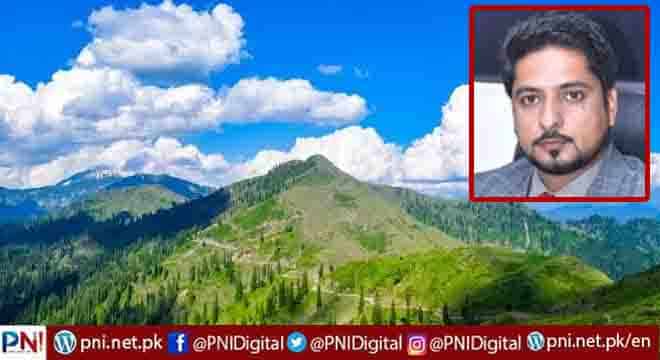The entire Kashmir region has been considered as one of the hotspot for national/ international tourists.
The condition of its meadows, mesmerizing views of lakes and streams are different in every season,
which touches the hearts of visitors. Those who want to see the snowfall in winter and slide on its flock
to the cold regions from all over Pakistan. Every view of Kashmir valley is quixotic for them. With the
recent trends in climatic conditions and environmental degradation in the last few decades, Kashmir is
losing its traditional environment.
While attending the recent seminar organized on the issue of the effects of climate change in Kashmir, I
was surprised to learn that this year’s spring season lasted only a few days due to which strange changes
are being observed in the environment. That is why maize production is also severely affected along with
the decline in fruit and vegetable cultivation in Kashmir.
The global think tank German Watch has said in a recent report that after the Philippines and Haiti,
Pakistan could be the most permanently affected country in the world by natural disasters as a result of
climatic conditions. In this regard, the major environmental threats will make Pakistan and Kashmir
prone to bear massive losses. As the state will expose to rapid floods, droughts, famines, fluctuations in
seasonal rainfall patterns, sudden rise in sea level and rivers, and extreme heat waves.
One of the reason for the above-mentioned problems is the increase in population in mountainous areas
and building infrastructure along rivers, the uninterrupted influx of tourists, deforestation, the
proliferation of vehicle utility, and lack of mismanagement for the preservation of freshwater resources
and disposal of waste. In addition to this, more fueling is done through unauthorized human
interventions in animal habitats, construction of development projects without survey and careless
distribution of resources.
The role of government and local administrations is crucial in the whole trend of environmental
degradation, which gives rise to climate change. Its job is to set up structures and mechanisms to
mitigate the negative effects of human activities on the environment. That is a fact. That is why
governments around the world have enacted legislation for the sake of the environment, and they are
now being strictly enforced.
Here the government itself is taking such measures, which increase the environmental pollution. Illegal
deforestation is not only rampant but the government itself is involved in deforestation in the name of
development projects. At the same time, valuable Timber wood logs from Kashmir’s forests are sold
outside the state. Ignoring the environment can be very dangerous for achieving development.
Unfortunately, the government seems to be sacrificing the environment for the benefit of the people,
rather than for the wider and lasting interests of the people.
There is a need for civil society and NGOs of Kashmir to join hands and save the region from the worst
swamp of global warming by raising awareness among the masses and through small initiatives. The
people of Kashmir need to put pressure on the administration the system of nature should not be
tampered with for its own interests.
Climate change is also a major cause of forest fires across Pakistan. As a result of this fire, two officials of
the Azad Kashmir Forest Department have also lost their lives recently. The fire has also severely
damaged fruits, wildlife populations and the environment.
There should be a complete ban on the construction near water reservoirs. A policy of non-destruction
of glaciers should be adopted. In addition, we need to plant trees at least in our local areas, protect
water resources from pollution, protect forests, and create a sense in people about how we can avoid
global warming.
Follow the PNI Facebook page for the latest news and updates.









